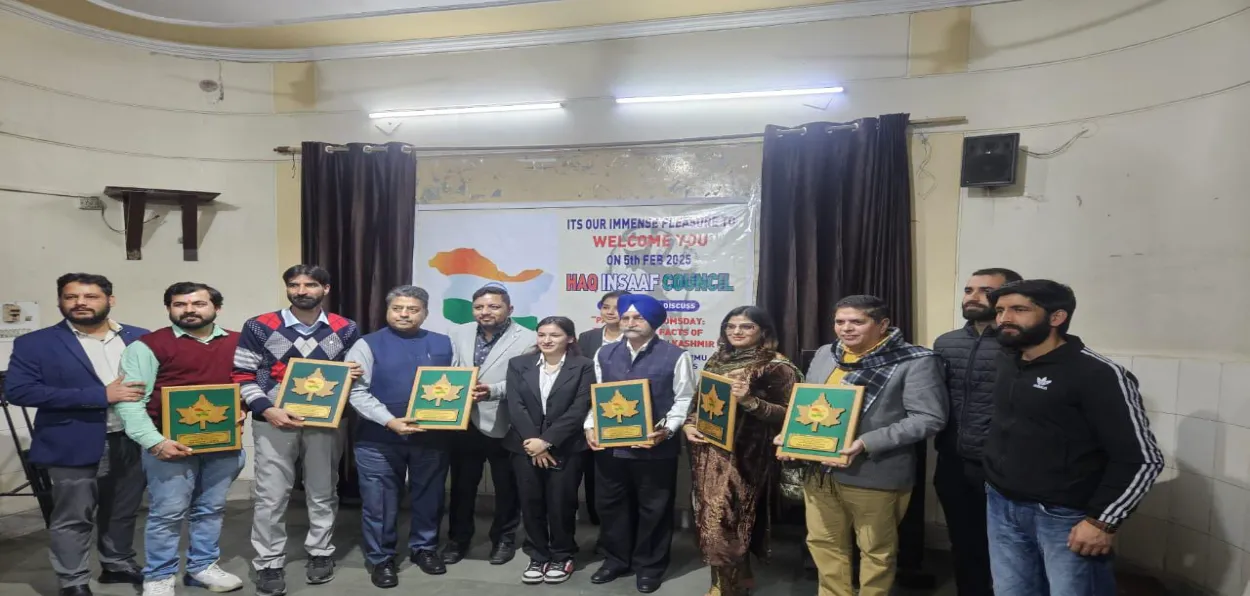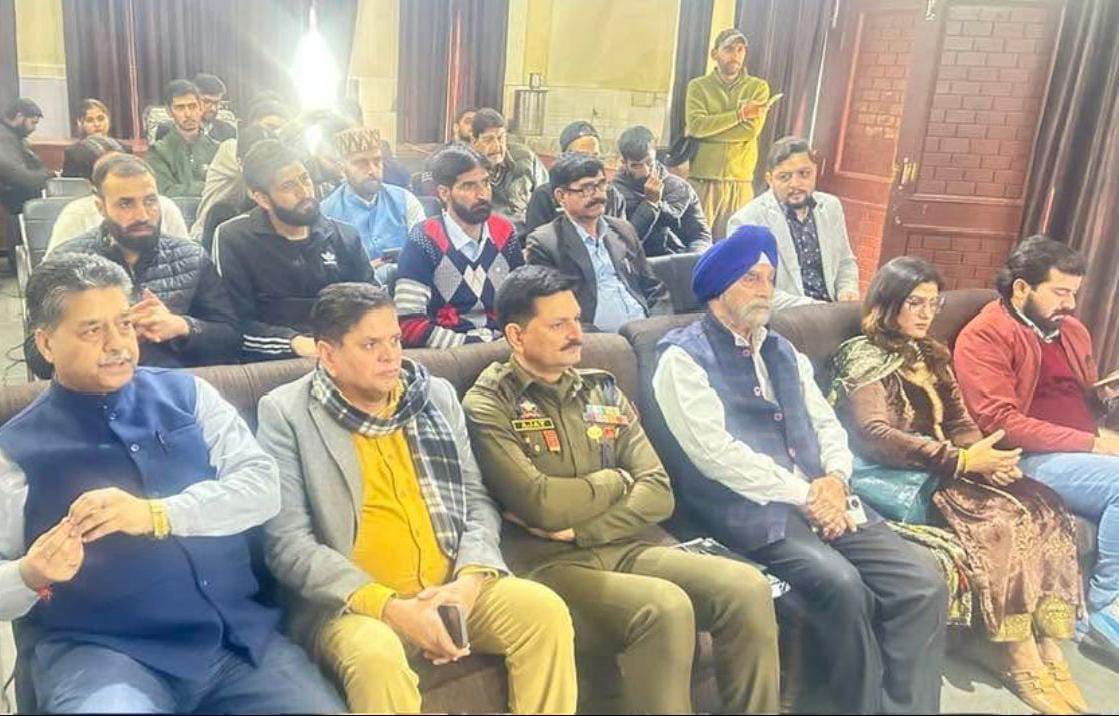
Jammu
Advocate Zeeshan Sayed, President of the Haq Insaaf Council, a peace-building organization of J&K, said that Pakistan's interference in the erstwhile State during the last three decades has caused the death of over 96,000 people including women and children, and disruption of the social fabric.
“Far from supporting the people of Kashmir, Pakistan has exploited the conflict to fuel its own political and economic agenda,” he said at a panel discussion organized at the Press Club Jammu on “Pakistan Doomsday: Exposing Facts of Terrorism in Jammu Kashmir on Kashmir Solidarity Day: A Facade or Genuine Concern?"
The event brought together prominent intellectuals, policymakers, and experts to dissect the narrative surrounding Pakistan's annual observance of “Kashmir Solidarity Day” and its implications for the region.
Zeshan Syed highlighted the blatant hypocrisy behind Pakistan's ‘solidarity’ with Kashmiris. He said instead, it has contributed to decades of destruction, violence, and suffering in the region.
The panel discussion was moderated by Momina, a law student of the University of Jammu. The panel discussion raised perspectives.
Advocate Zeeshan Sayed, President of the Haq Insaaf Council
Subash Gupta, Former PSC Member and Session Judge, shed light on the legal and humanitarian implications of Pakistan's role in Jammu and Kashmir.
Rajiv Chuni, Chairman of SOS International, highlighted the ongoing struggles of PoJK refugees and the need for accountability.
Sheraz Zamaan Lone, representing Team Kashmir Renaissance, underscored the resilience of Kashmiris and the importance of reclaiming their narrative.
Gurdev Singh, Chairman of Sharnarthi Committee PoJK, spoke on the exploitation of PoJK's resources by Pakistan, and advocate Basharat Hussain emphasized the legal aspects of Pakistan’s occupation of PoJK and Gilgit-Baltistan.
Sushil Singh, representing the Kashmiri Pandit Migrant Committee, shared his community's enduring struggle and resilience.
Senior Police Officer Ajaz Sharma highlighted the security challenges posed by Pakistan-sponsored terrorism, while Dr. Nitan Sharma provided a socio-political perspective on Pakistan's diminishing credibility and exploitative tactics.
The discussion revealed how Pakistan's diversion of foreign loans, originally meant for development and welfare, to fund terror networks and ISI operations.
 Participants of the panel discussion
Participants of the panel discussion
While the people of PoJK and the rest of Pakistan suffer from unemployment, inflation, and deteriorating living conditions, the ruling elite and their operatives continue to get richer.
Panelists highlighted the manipulation of young minds by pseudo-leaders, to inflame communal passions and recruit them into insurgency, perpetuating a cycle of violence and death while the tanzeem leaders and their ISI handlers enjoy secure, and lavish lifestyles.
A significant point of the discussion focused on Pakistan's history of exploiting international funds by leveragging geopolitical and religious narratives, including countering Russian influence in Afghanistan, invoking Islamic jihad, participating in the drug trade, and blackmailing China.
Despite all this, Pakistan's economy continues to plummet, and conditions are ripe for its possible fragmentation into multiple independent regions, including Baluchistan, KPK merging with Afghanistan, and PoJK reuniting with India.
Dr. Nitan Sharma reiterated the need to raise questions on the motives of Pakistan's leadership. He emphasized that the future lies in peace, education, and development, not in conflict.
The Haq Insaaf Council called on the people of PoJK and Pakistan to demand transparency and accountability from their government, ensuring that public resources are used for welfare rather than perpetuating a system built on terror and exploitation.
It reaffirmed its commitment to fostering meaningful dialogue, advocating for justice, and promoting peace and national integration.
ALSO READ: Farooq Nazki penned human pain, aspirations for future in his poems
Researchers and students who joined the discussion included Jaspreet Kaur,Tahir Mustafa Malik, Shivam Jasrotia, Anirudh Sharma, Vaibhav Dabur, Ravi Shanker, Kritika, Waheed Parvaaz, and Sageer Qureshi.
